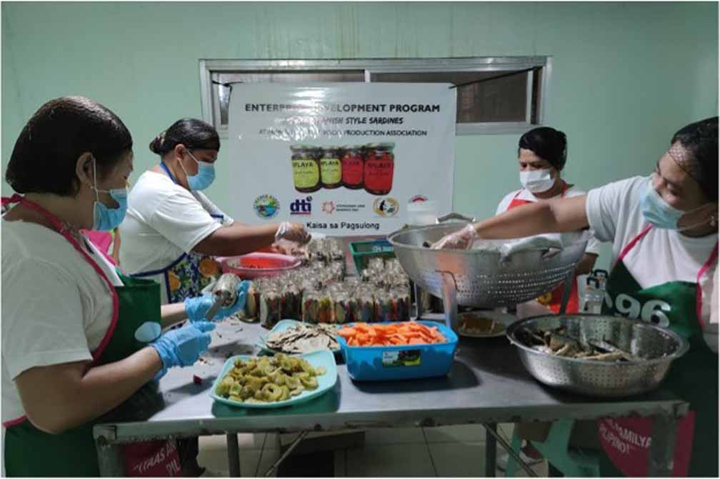
THE national government has overlooked women-led micro, small and medium enterprises (MSMEs) and the manufacturing sector in its Covid-19 efforts, according to a report released by the United Nations (UN).
The study, titled Resilient Businesses and the Pandemic, was conducted by the International Labour Organization (ILO), the United Nations Industrial Development Organization (Unido) and the United Nations Entity for Gender Equality and the Empowerment of Women.
Based on the report, support for women entrepreneurs and those in the informal sector as well as the food processing/manufacturing sector was overlooked in the Bayanihan 1 and 2 package.
“Food processing/manufacturing sector, while considered part of the essential economic activities permitted to operate, had been overlooked in the Bayanihan Act series. In contrast, logistics, transportation, education and tourism sectors were prioritized and funded,” the report stated.
“As expressed in the stakeholder validation, the general concern was that there was not enough support for women entrepreneurs and workers and those in the informal economy,” the report also stated.
The report said MSMEs usually relied on their “resourcefulness and ingenuity” to survive. They also employed this during the pandemic.
Some of these efforts entailed using e-commerce to sell their products and reach more consumers as well as adopting cash management strategies like cutting costs and negotiating for supplier credit in order to cope.
However, assistance from the national government was lacking, as observed in the lack of promotion programs; discordant programs that
can become counterproductive measures; and the lack of focused, structured/systematic approach that could have responded to the current needs of MSMEs.
The report said support for women would have also gone a long way since women often juggle multiple roles: apart from being business owners, they also manage households and become the primary caregivers for their families. Workers in the informal sector also experienced much economic uncertainty due to the pandemic, the UN said, noting this was a concern since they comprised 38 percent of the total working population.
“Informal workers are characterized by not being duly registered or formally recognized, thus they are automatically excluded from key support programs of the government,” the report stated.
Neda explains
Meanwhile, the National Economic and Development Authority (Neda) Undersecretary for Policy and Planning Rosemarie G. Edillon said in a briefing some sectors were excluded in the Bayanihan packages because these were already covered by existing government programs.
Edillon said in terms of the government support, agencies like the Department of Agriculture (DA) and Department of Trade and Industry (DTI) already “went all out in support” of these sectors. She said the support extended to these sectors include providing logistics transport. Edillon cited as example the one extended by the Bureau of Fisheries and Aquatic Resources (BFAR).
The Neda official said BFAR lent their delivery trucks to address the logistics problem of MSMEs with mobility issues.
Edillon said the assistance to food MSMEs also included the Expanded SURE Aid and Recovery Project or SURE Covid-19 financing program. These programs are already part of the budgets of these agencies.
Image courtesy of Atimonan One Energy Inc.

